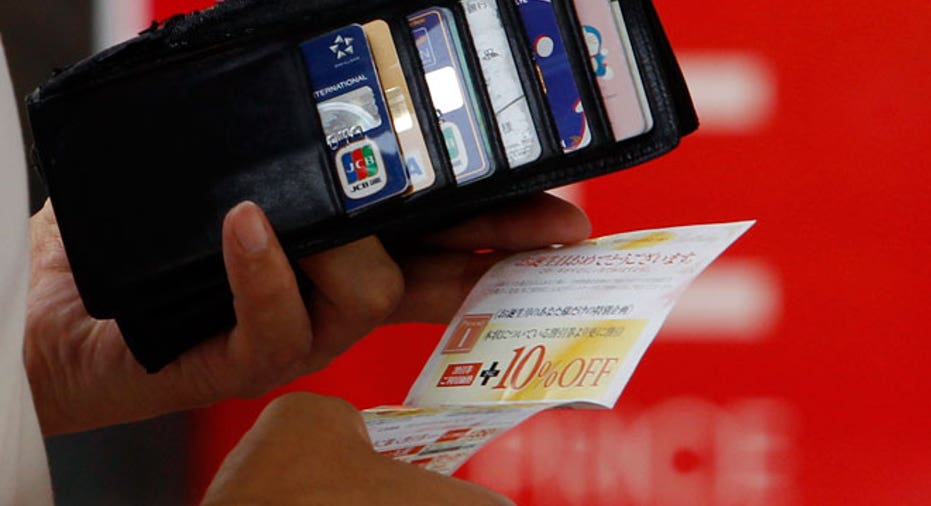Credit Card Strategy for the Holiday Overspender

It's the most wonderful time of the year, when even the most disciplined spender can end up running a credit card balance.
The holiday spirit often seems in conflict with the budgeting spirit, and January can bring big bills. Here’s one way to minimize – or quarantine! – the damage.
When Americans talk about money, it's often a tale of two extremes -- spendthrifts who never waste money on credit card interest, and out-of-control spenders who use revolving debt as frequently as revolving doors at retail stores. Let’s call one group "Zero Balancers" and the other "Revolvers." The truth can lie in the middle, however. There are occasional Revolvers, folks who occasionally overspend due to life's surprises: the surprise transmission repair, the last-minute vacation to Europe, the holiday spirit.
For that group, I offer a suggestion for staying on track and minimizing interest expenses come January. Use two different credit cards: a "clean" card and a "line of credit" card.
1. The 'line of credit' card is used only for big emergency purposes -- like a pricey car repairs or expensive holiday shopping. Save it for occasions when you know you won't be able to pay off your bill. Once the “splurge” is over, you STOP using this card. Throw it in a drawer until it’s paid off.
2. An everyday purchase card -- a "clean card" -- you pull out for regular purchases. Never spend more on this card than you can pay off every month.
Credit Without Grace
What does this accomplish? One negative to revolving purchases is that you lose the grace period on every credit card purchase you make. The grace period gives you 20 to 45 days to pay off purchases free of interest. But once you don't pay your credit card bill in full, you fall from grace – you no longer enjoy the grace period.
Then you start paying interest the nanosecond you make any additional charges. Say you normally spend $2,000 a month on a card for milk, beer, etc. with a 24 percent rate (for simplicity). If you pay your bill every month, you borrow the money for free. Just once, you fail to pay your bill in full. Now that same $2,000 will cost you roughly $480 annually or $40/month.
Use your own multiples to see how much carrying a balance can cost you. Perhaps more important, having a clean card and a line of credit card helps you maintain a healthy psychology about using credit cards. I find doing this helps consumers avoid that "oh, I'll never get out of debt" feeling, and its nefarious cousin, “I don’t really know how much debt I have.”
Mixing up daily purchases with bigger, emergency purchases is the road to financial perdition. It’s really handy to have a "line of credit" card where the balance only goes down, and you can easily estimate how long it will take to pay off the card. Mix that balance with dozens of daily $20, $50 and $75 purchases and you’ll quickly lose a mental grasp of where you stand. And that’s big trouble.
Going Cold Turkey
It's OK to borrow money once in a while. Surprises -- and spontaneous generosity -- happen. The real problem occurs when a Zero Balancer starts bleeding into a Revolver. The psychology works like this: "Now that I owe, well, what's the difference?" That it’s-just-another-swipe feeling is the difference. A dear friend, Gretchen Rubin -- author of The Happiness Project -- rightly points out that for many people, it's easier to quit drinking altogether than to start drinking less. That's true in credit, too.
Sure, many people are opposed to using credit cards on philosophical grounds, and another group uses cards but would sooner give coal in a stocking than carry a balance. Naturally, that's optimal. But if you find yourself carrying a balance this holiday season, think of it as a member of your financial family having a bad cold. Quarantine the sick child from the rest of your family, pay the balance off in few months, and you'll minimize the damage. Let that sick card infect the rest of your finances, and now you've got a full-blown outbreak on your hands. And you'll end up spending a whole lot more money.
Read More from Credit.com
How to Improve Your Credit Score
What Is the Average Credit Card Debt in America?
Tips for Paying Off Credit Card Debt



















